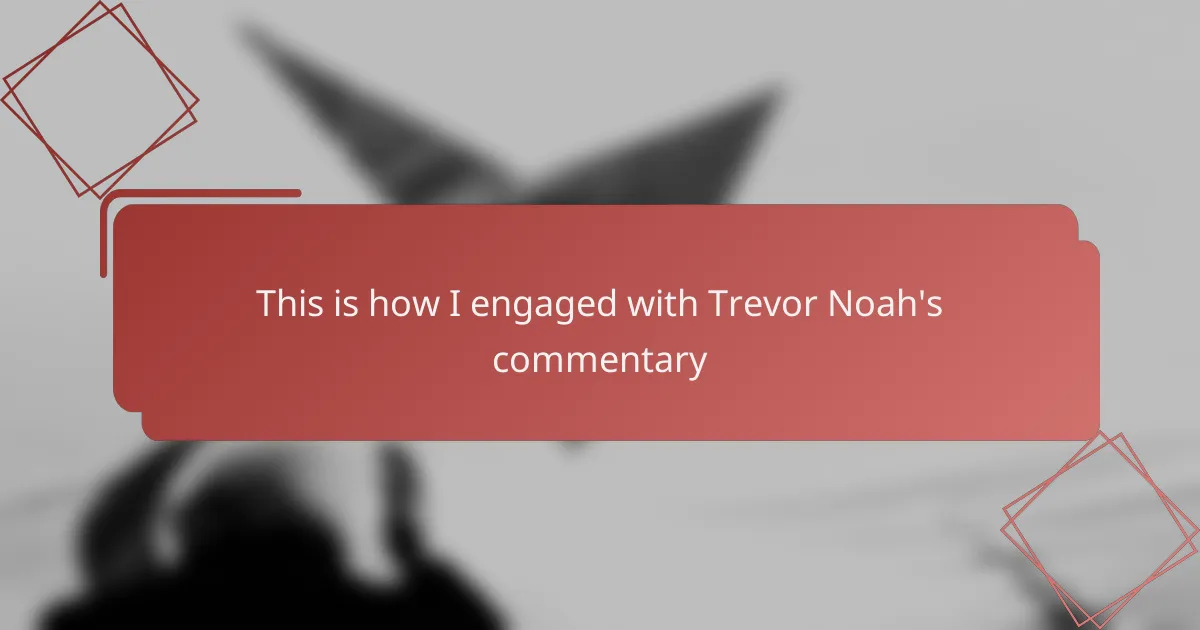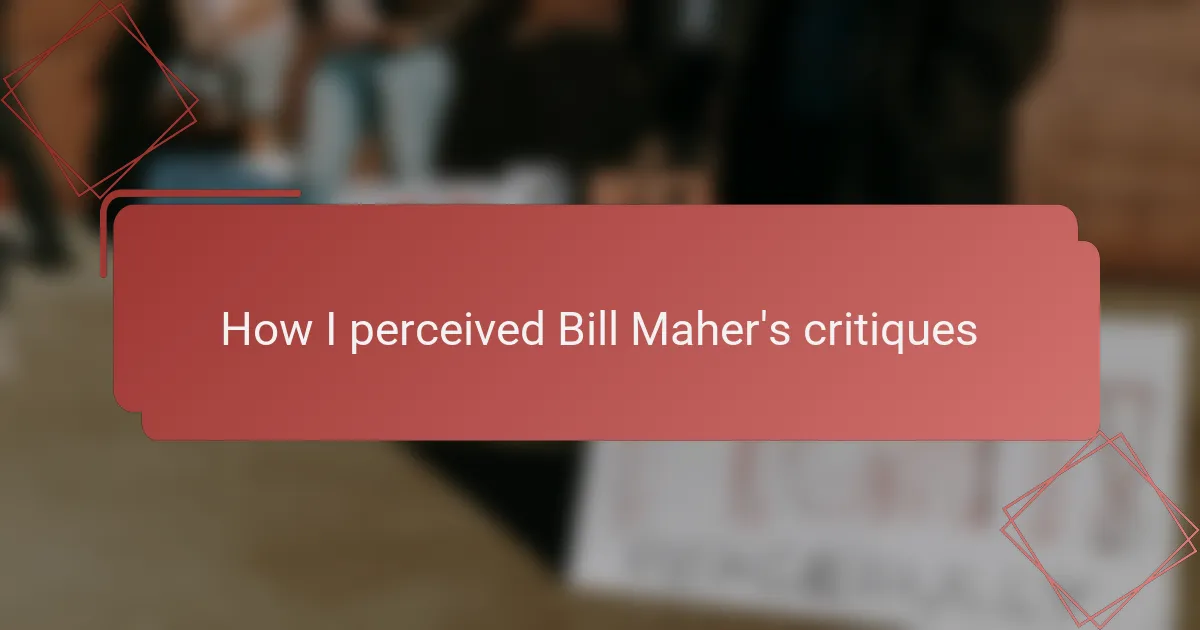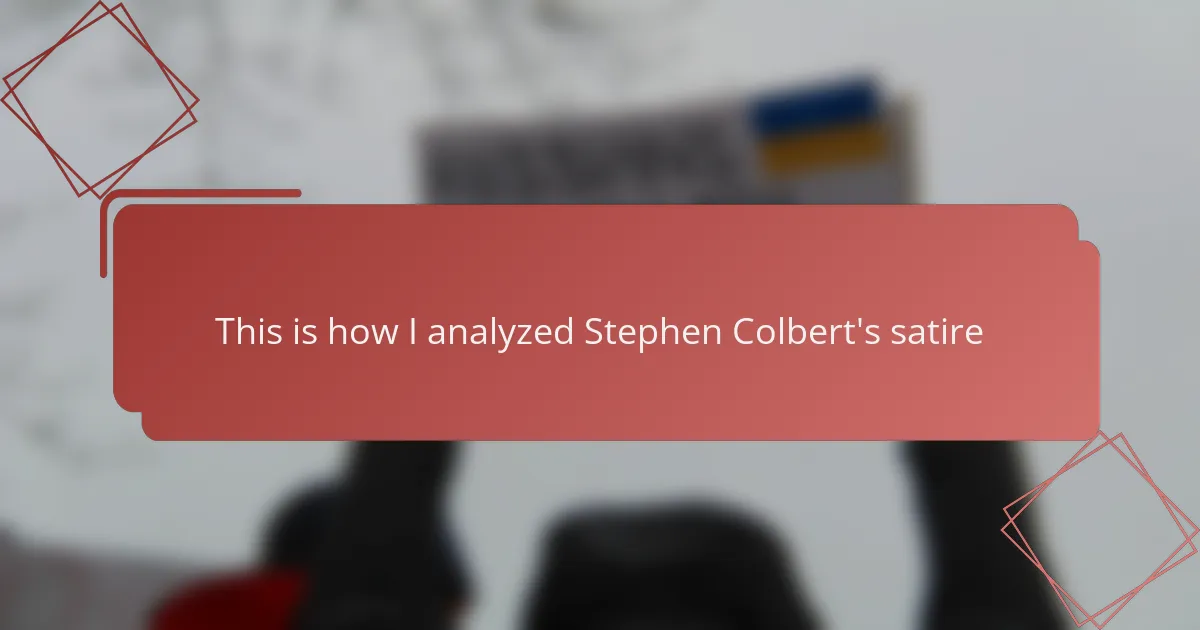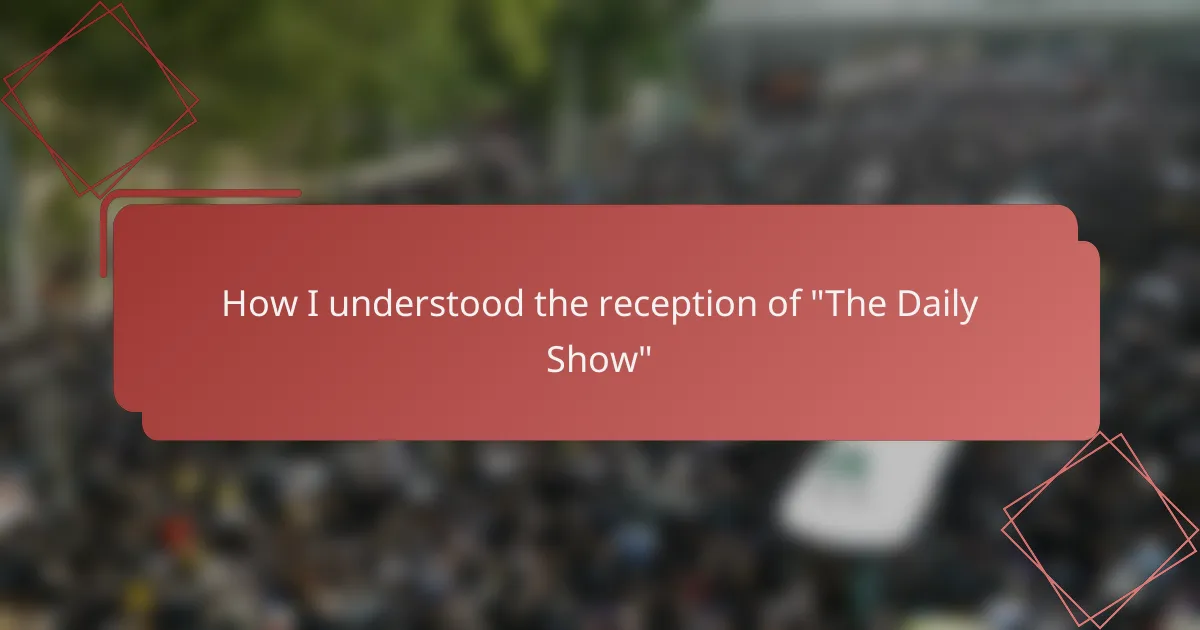Key takeaways
- Political satire combines humor and critique, prompting reflection on societal and governance issues.
- Trevor Noah effectively blends personal anecdotes with sharp wit to create relatable and thought-provoking commentary.
- Analyzing satire involves understanding irony and sarcasm, which reveals deeper truths about political narratives.
- Satire serves as a powerful tool for exploring complex topics, encouraging critical thinking without alienating the audience.
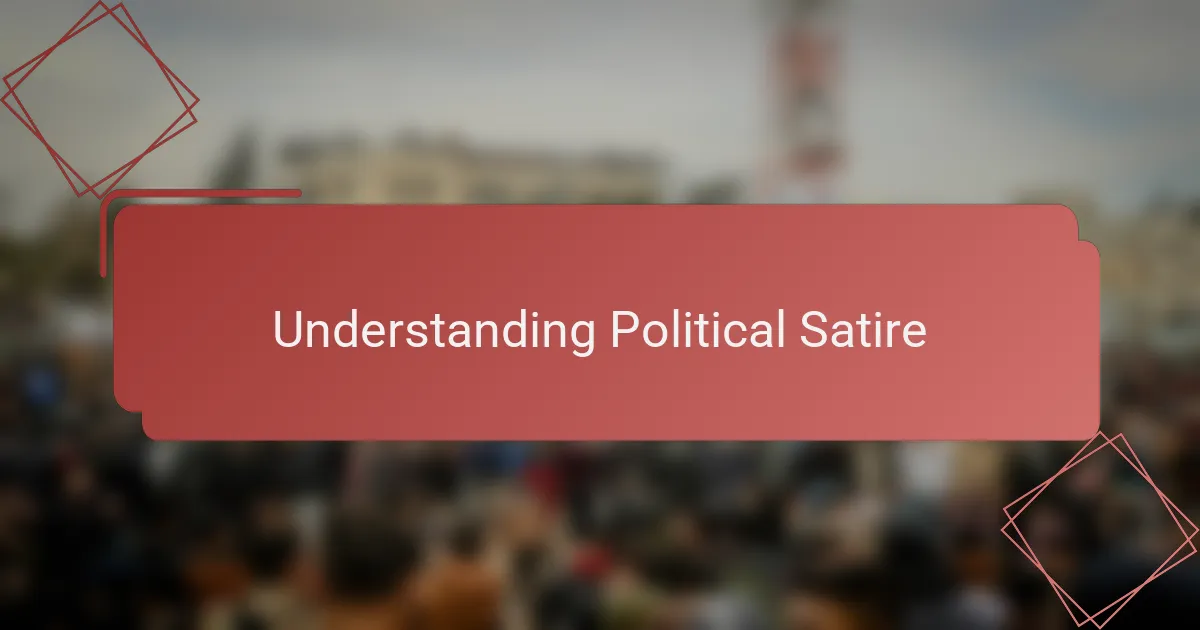
Understanding political satire
Political satire has always struck me as a unique blend of humor and critique—it’s not just about making people laugh, but about making them think. Have you ever caught yourself chuckling, only to realize the joke was actually pointing out something quite serious about society or governance? That moment of recognition is where satire’s power lies.
From my experience, understanding political satire means peeling back layers. It’s like decrypting a cleverly wrapped gift—you may smile at the surface, but the real value is inside, often uncomfortable truths cloaked in wit. When I first encountered Trevor Noah’s commentary, I was drawn in not just by the humor, but by the insight underneath.
Isn’t it fascinating how satire walks a fine line between entertainment and education? It challenges us to question the status quo without feeling like a lecture. This balancing act is what makes political satire such a compelling tool for reflection, especially in turbulent times.
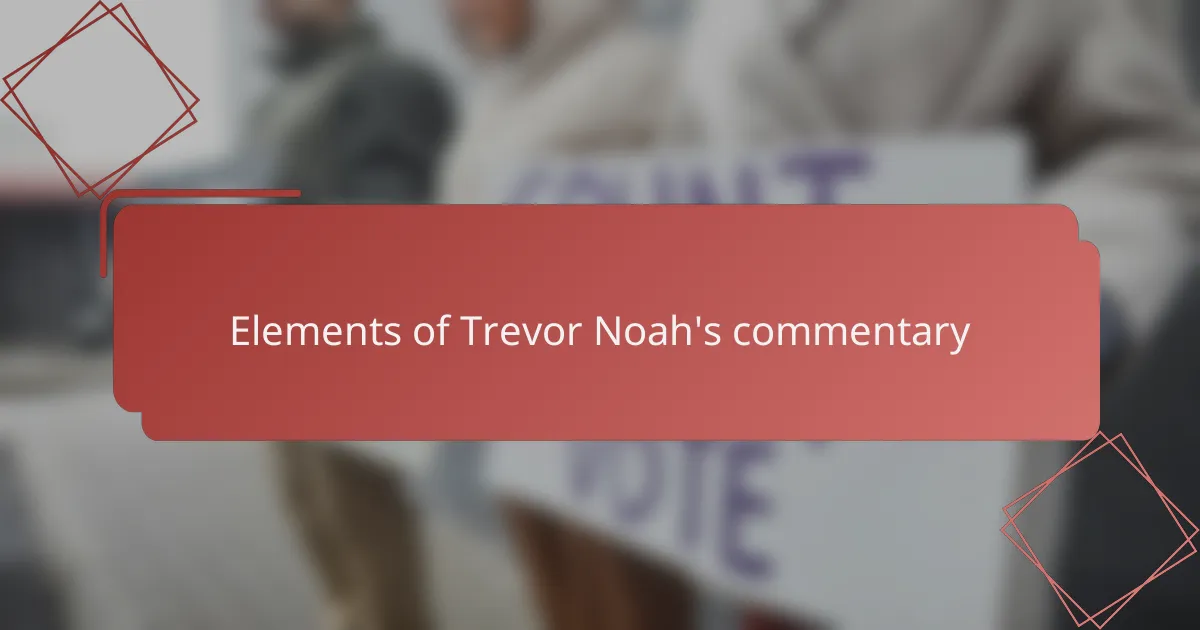
Elements of Trevor Noah’s commentary
What stands out to me in Trevor Noah’s commentary is his knack for weaving personal stories into broader political discussions. It’s not just about headlines; he brings his own experiences, which makes the issues feel more tangible and relatable. Have you noticed how that blend of the personal and the political creates a stronger connection with the audience?
Another key element I’ve found is his use of sharp wit and irony. Trevor doesn’t just report or explain; he twists the narrative with humor that often reveals absurdities we might otherwise overlook. It’s like he’s inviting us to see the world through a different lens—one that’s equal parts funny and thought-provoking.
What really resonates with me, though, is his ability to remain empathetic even when delivering biting critiques. His commentary often shows a deep understanding of the human side behind political conflicts, which adds layers to the satire. Isn’t it powerful when humor doesn’t just mock but also reminds us of our shared vulnerabilities?
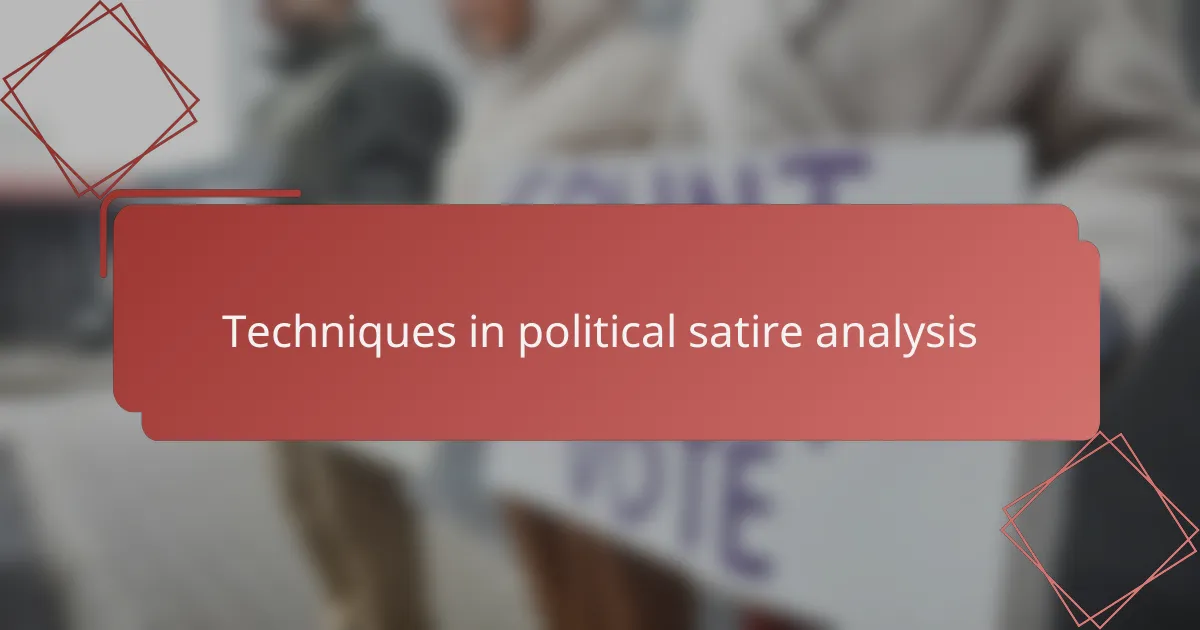
Techniques in political satire analysis
Political satire is a nuanced art, and analyzing it requires keen observation of tone, context, and delivery. When I engaged with Trevor Noah’s commentary, I found it crucial to dissect his use of irony and sarcasm, as these tools often reveal deeper truths beneath the humor. His ability to weave current events into relatable stories made my analysis both challenging and rewarding.
I’ve noticed that Trevor’s sarcasm isn’t just for laughs; it often highlights contradictions in political narratives. This realization helped me appreciate how satire can provoke thought and encourage critical reflection rather than just entertain. Comparing his technique with other satirists showed me how unique his style is in blending cultural insight with sharp political critique.
| Aspect | Trevor Noah |
|---|---|
| Use of Irony | Subtle but pointed to expose political hypocrisy |
| Contextual References | Draws heavily on current global and cultural events |
| Emotional Tone | Balancing humor with empathy and critical insight |
| Delivery Style | Conversational, engaging with personal anecdotes |
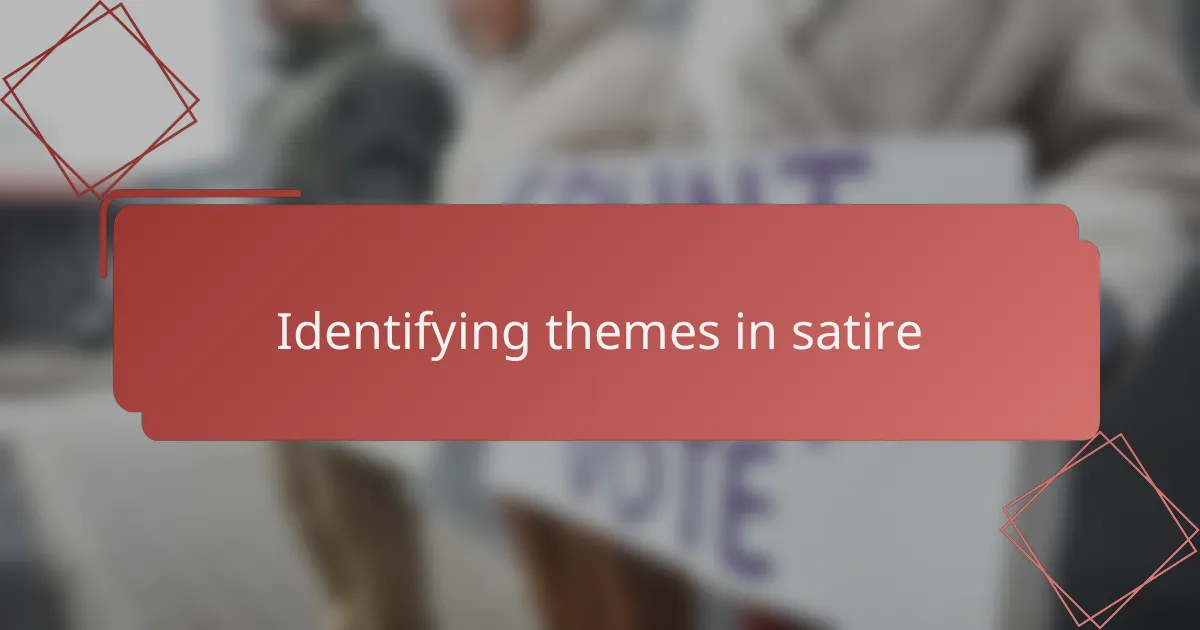
Identifying themes in satire
I found that Trevor Noah’s satire often revolves around themes like political hypocrisy, social justice, and media influence. What struck me most is how he balances humor with sharp criticism, making complex issues feel both accessible and urgent. This approach really helped me recognize how satire can serve as a powerful commentary tool without alienating the audience.
| Theme | Trevor Noah’s Approach |
|---|---|
| Political Hypocrisy | Uses irony and exaggeration to expose contradictions in leadership |
| Social Justice | Combines empathy with humor to highlight systemic inequalities |
| Media Influence | Mocks sensationalism while encouraging critical thinking about news sources |
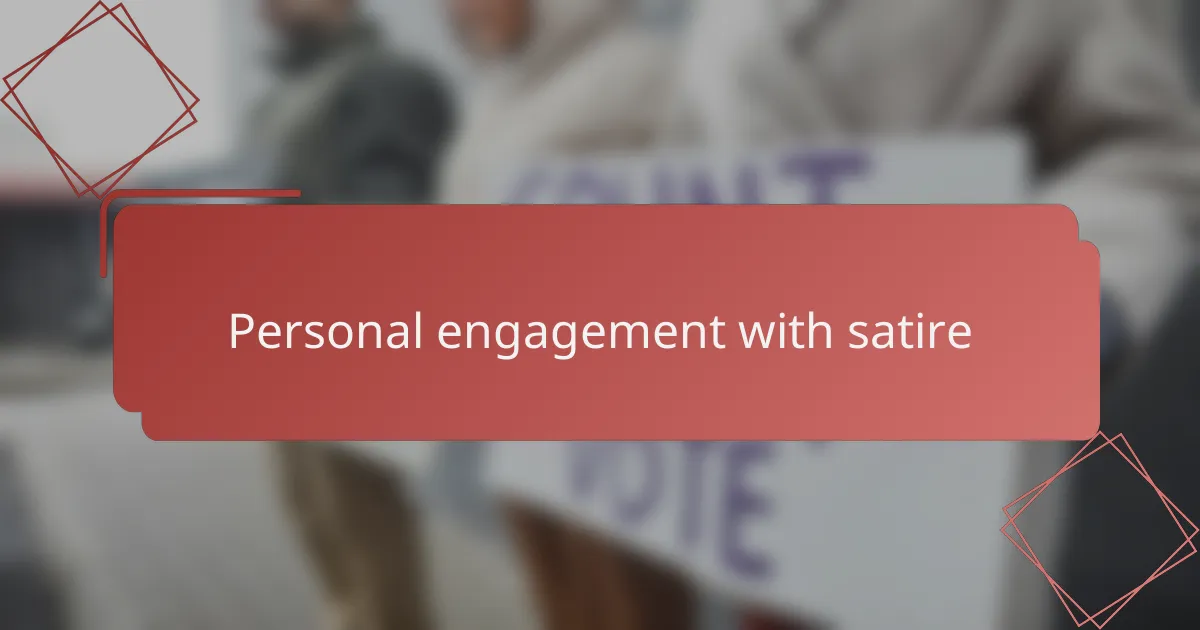
Personal engagement with satire
I always found Trevor Noah’s commentary refreshingly sharp, yet deeply relatable. His ability to weave humor with insightful critique made me reflect on political issues from angles I hadn’t considered before. Engaging with his satire became a way for me to stay informed while enjoying the cleverness of his delivery.
| Aspect | Experience with Trevor Noah’s Satire |
|---|---|
| Emotional Impact | Provokes thought and laughter simultaneously, making complex issues approachable. |
| Style | Conversational with a mix of wit and empathy, which draws me in personally. |
| Effectiveness | Encourages critical thinking without feeling preachy or overwhelming. |
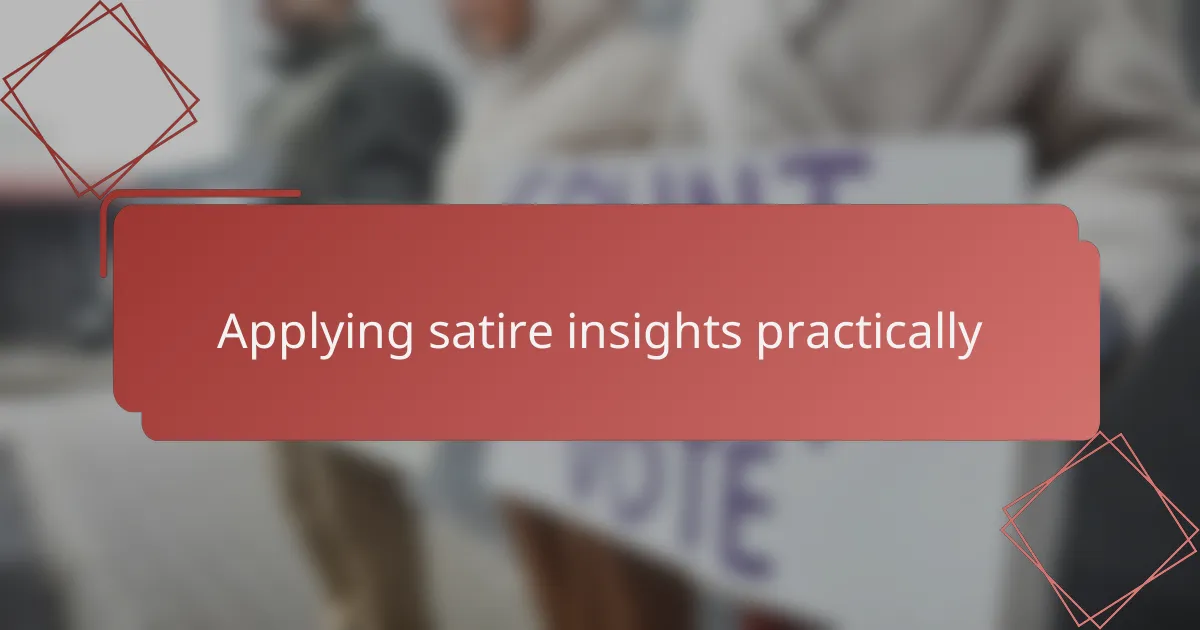
Applying satire insights practically
Applying satire insights practically often means taking the sharp wit from Trevor Noah’s commentary and using it to question my own assumptions. I find that his ability to blend humor with harsh political realities helps me navigate complex topics without feeling overwhelmed. It’s like a toolkit for critical thinking wrapped in laughter.
Sometimes, I catch myself reframing real-world events after hearing Trevor’s take, noticing the absurdity beneath serious headlines. This approach makes political discussions less polarized and more about understanding the human side behind policies. For me, his satire is a chance to reset emotions and think more deeply.
| Insight from Trevor Noah’s Satire | Practical Application |
|---|---|
| Using humor to reveal political contradictions | Encourage open-minded discussions in personal and social settings |
| Highlighting social injustices with empathy | Promote awareness and action without alienation |
| Cleverly simplifying complex topics | Break down political issues for easier understanding in conversations |
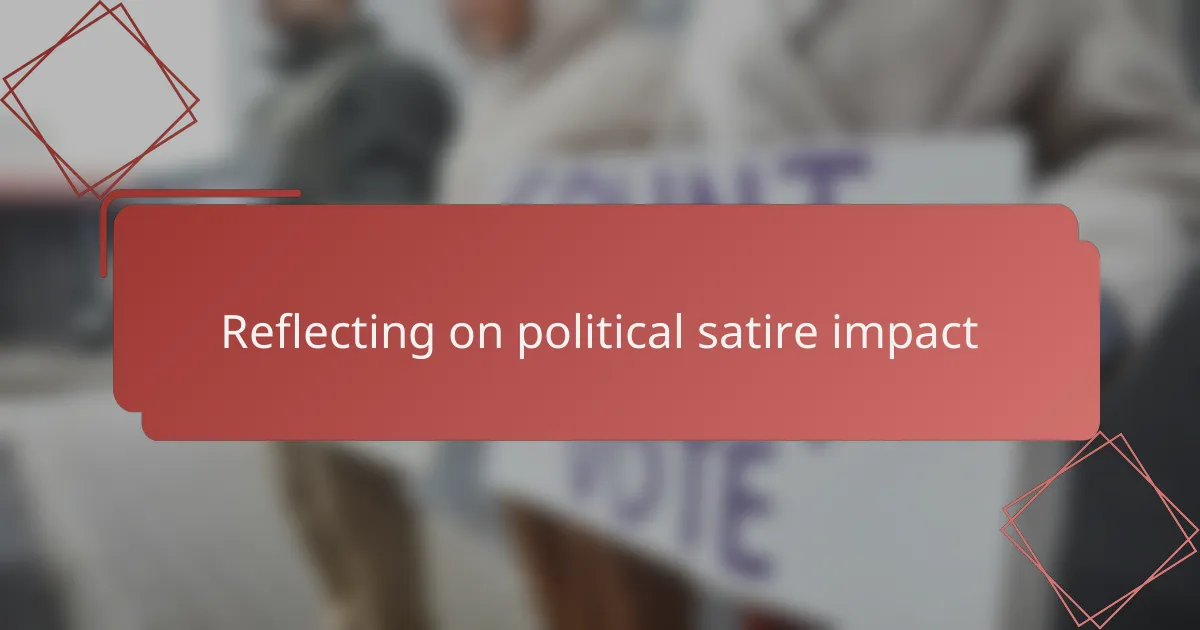
Reflecting on political satire impact
Reflecting on political satire’s impact, I’ve realized it goes far beyond just entertainment—it shapes how I perceive the world. Have you ever found yourself laughing at a joke, then pausing to rethink your perspective on an issue you thought you understood? For me, satire like Trevor Noah’s often acts as that nudge, prompting deeper reflection on political realities.
One time, after watching one of Trevor’s segments, I couldn’t shake the blend of humor and seriousness he crafted. It stayed with me long after the laughter faded, pushing me to question familiar narratives and biases. That emotional tug—the mix of amusement and discomfort—is exactly what makes satire so impactful in encouraging critical engagement.
Isn’t it fascinating how satire can open doors to conversations that might otherwise feel heavy or divisive? From my experience, it softens resistance and invites curiosity, making political critique accessible without drowning the audience in negativity. This subtle influence is why I believe political satire holds a unique place in shaping public consciousness.
